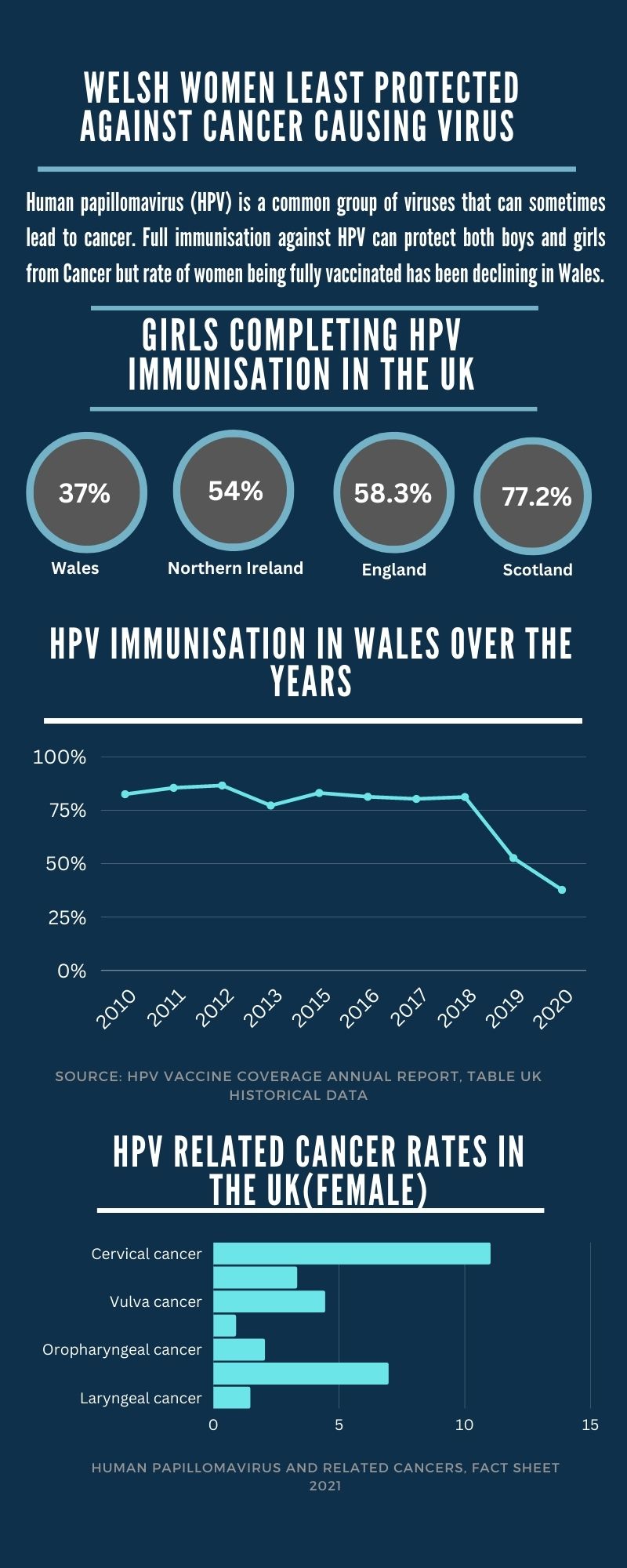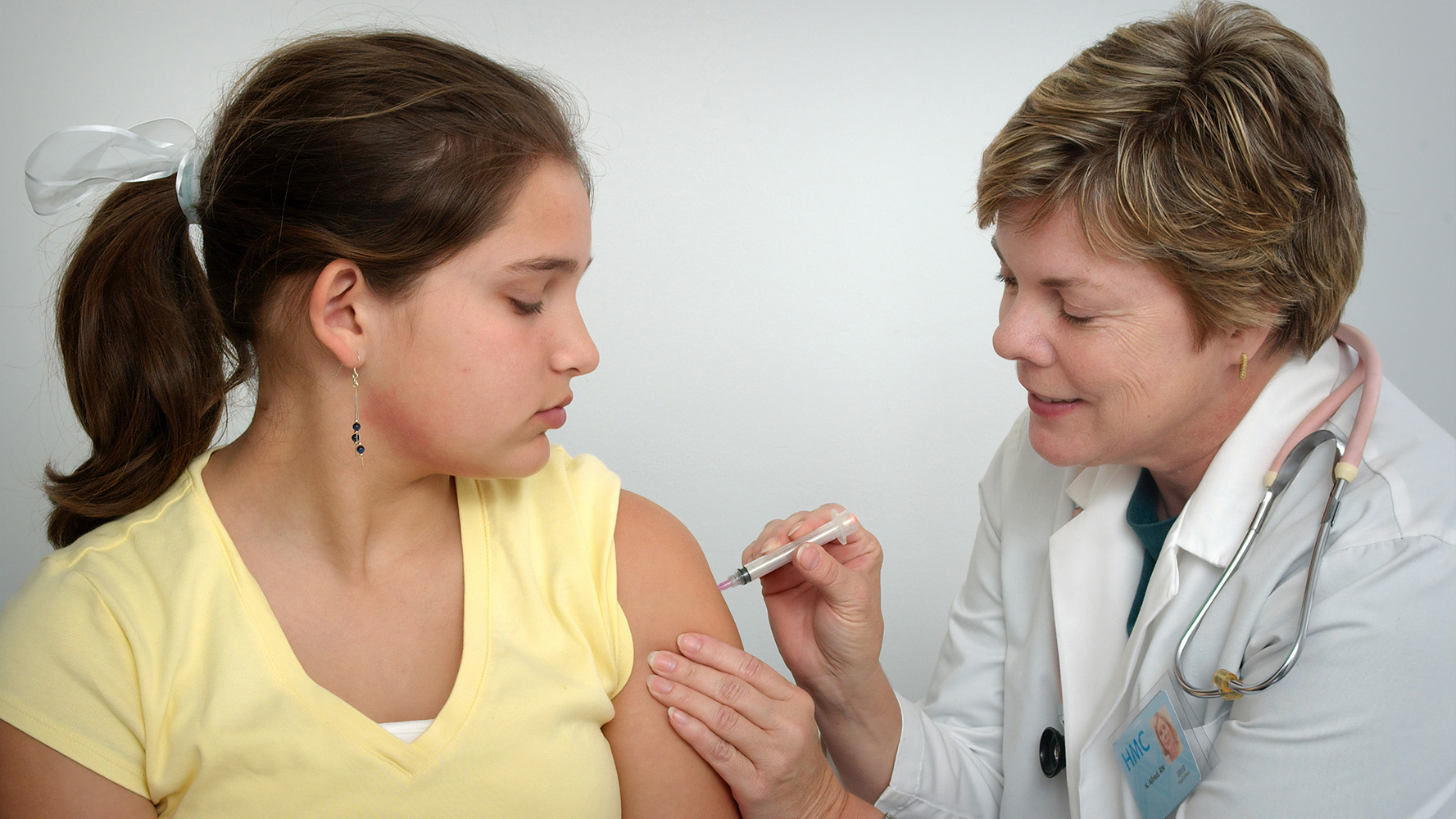A significant drop in immunisation in the past four years could leave Welsh women at a greater risk of developing cancer.
Welsh women could have a greater risk of developing Cancer as immunisation rates in Wales experience a steady decline.
In the past four years, Wales has witnessed a drop of 43% in the number of women being fully immunised against Human papillomavirus (HPV), which is a common group of viruses that can sometimes lead to cancer.
Dr Stephen Man a Reader at the Division of Cancer and Genetics (DCG) said, “I think it probably relates to Public education. I don’t know if any of you have seen any adverts for HPV vaccination. It’s not really something that’s done. Ideally, it should be done in schools, but over the last two or three years, school life has been disrupted by covid.”
He said, “HPV can cause warts on the skin, on the hands, or on the feet but it can also cause some more serious diseases like cancer. So, although it’s a very common virus, they say that probably around 1% of HPV infections lead to cancer and obviously cancer, depending on which stage you catch it at, can be fatal or it can be treated if you catch it at an early stage.”
Wales fared much lower across the UK in terms of girls receiving the full course of HPV immunisation with Scotland at approximately 77%, England at around 58% and Northern Ireland at about 54% respectively.
Comparatively, the number of girls receiving the first dose of the vaccination in Wales stood at 75%, much higher than those completing the full course.
The Welsh government implemented a one-dose schedule for the routine adolescent and MSM programmes before the 25th birthday, in August 2022.
Welsh Minister for Health and Social Services Eluned Morgan said, “The move to one dose will minimise disruption for schools and create more capacity due to the vaccination session reduction, whilst still maintaining the incredible levels of success in combatting HPV and reducing cancers with a single dose.”
However, Cancer Research UK says that one must get both the doses of HPV vaccine for maximum protection.
According to a study conducted by the charity, the incidences of cervical cancer in women who had the vaccine between the ages of 12 and 13 and are now in their twenties are 87% lower than those in the general population who did not receive the shot.

In Scotland where the full immunisation rate was the highest, around 77% of all year-10 girls and around 85% of all year-11 girls had completed the two-dose course of HPV immunisation last year.
Whereas in England, both girls and boys between the ages of 12-13 years are offered the 1 st dose of HPV vaccination in their school year 8 while its second dose is offered 6-24 months post the first vaccination.

